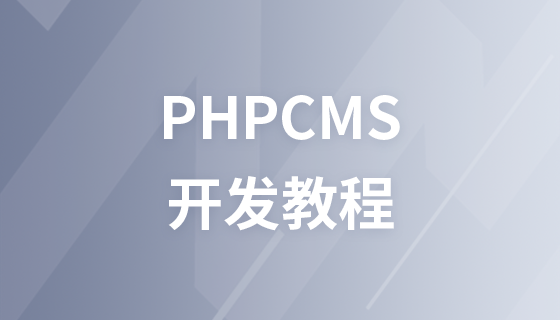phpcms标签的用法:1、显示指定catid的栏目名称和链接;2、调用子栏目;3、得到指定栏目下的新闻;4、实现分页功能。

phpcms标签的使用:
1、显示指定catid的栏目名称和链接 {$CATEGORYS[25]['catname']} {$CATEGORYS[25]['url']}
获取父栏目id,获取父栏目名称 $CATEGORY[$catid][parentid]} 父栏目名称:{$CATEGORYS[$CAT[parentid]][catname]}
去掉标题限制后出现的省略号
{str_cut($r[title],36,'...')}格式化时间 2011-05-06 11:22:33
{date('Y-m-d H:i:s',$r[inputtime])}
{date('Y年m月d日',$r[inputtime])}2、调用子栏目(在栏目首页模板需要用到,列表页也可以用到)
{pc:content action="category" catid="$catid" num="25" siteid="$siteid" order="listorder ASC"}
{loop $data $r}
<a href="{$r[url]}">{$r[catname]}</a> |
{/loop}{/pc}3、得到指定栏目下的新闻
(1)这里moreinfo="1"表示主副表关联起来 可以直接使用
{pc:content action="lists" catid="$catid" num="25" order="id DESC" return="info" moreinfo="1"}
{loop $info $r}
更新日期:{date('Y年m月d日',$r[updatetime])}
作者:{$r[username]}
来源:{$r[copyfrom]}
点击率{$r[readpoint]}
网址{$r[url]}
文章标题 {$r['title']}
标题样式{title_style($v[style])}
{/loop}
{/pc}
<p>=====================</p(2)sql万能语句可以调用指定内容 更方便
{pc:get sql="select * from v9_news as a,v9_news_data as b where a.id=b.id and catid=34 and status=99 order by a.id desc"}
{loop $data $v}
<li><a href="{$v['url']}" target="_blank"><img src="{$v[thumb]}" width="146" height="117" /></a></li>
{/loop}
{/pc}
{pc:get sql="select * from v9_news where catid=10 and status=99 order by updatetime desc" num="5" start="23"}
{loop $data $rs}
<a href="{$rs['url']}" title="{$rs['title']}" target="_blank">{$rs['title']}</a>
{/loop}
{/pc}
<p>=====================</p(3)文章从指定位置开始调用 (position推荐位使用)
起始位置为5,调用3条。相当于limit功能。
{pc:content action="position" posid="27" order="listorder DESC" num="3" start="5"}
{loop $info $r}
<a href='{$r[url]}'>{str_cut($r[description],115)}... </a>
{/loop}
{/pc}
或{pc:content action="lists" catid="54" thumb="" order="listorder DESC" start="3" num="5"} thumb="" 不分类
<p>=====================</p>循环列表新闻
<div class="content">
{pc:content action="position" posid="9" order="listorder DESC" num="4"}
{loop $data $r}
<a href="{$r[url]}" title="{$r[title]}">{str_cut($r[title],36,'')}</a>{date('Y-m-d H:i:s',$r[inputtime])}
<p>{if $n==1}<img src="{thumb($r[thumb],90,60)}" width="90" height="60"/>{/if}{str_cut($r[description],112,'')}<a href="{$r[url]}">[reading more]</a></p>
{/loop}
{/pc}
</div>
<p>=====================</p>(4)有分页效果
{pc:get sql="select * from wecheweyounews where hour=$hour order by id desc" return="data" num="50" page="$page"}
<ul >
{loop $data $r}
<li><span class="left">·<a href="{$r['url']}" target="_blank">{str_cut($r['title'],60)}</a>(编辑:{$r[username]})</span><span class="right">{date("Y-m-d",$r['inputtime'])}</span></li></li>
<?php
if($n%5==0 and $n<50) echo "</ul><ul>";
?>
{/loop}
</ul>
</div>
<div id="pages" class="text-c">{$pages}</div>
{/pc}4、
{pc:content action="position" posid="1" order="listorder DESC" thumb="1" num="5"}
{loop $data $r}
<a href="{$r['url']}" title="{str_cut($r['title'],30)}"><img src="{thumb($r['thumb'],300,200)}" alt="{$r['title']}" width="310" height="260" /></a>
{/loop}
{/pc}
5、分页
前台调用num="50"指每页50条记录
{pc:get sql="select * from wecheweyounews where hour=$hour order by id desc" return="data" num="50" page="$page"}
<ul >
{loop $data $r}
<li><span class="left">·<a href="{$r['url']}" target="_blank">{str_cut($r['title'],60)}</a>(编辑:{$r[username]})</span><span class="right">{date("Y-m-d",$r['inputtime'])}</span></li></li>
<?php
if($n%5==0 and $n<50) echo "</ul><ul>";
?>
{/loop}
</ul>
</div>
<div id="pages" class="text-c">{$pages}</div>
{/pc}相关学习推荐:phpcms教程
以上是phpcms标签如何使用?的详细内容。更多信息请关注PHP中文网其他相关文章!

